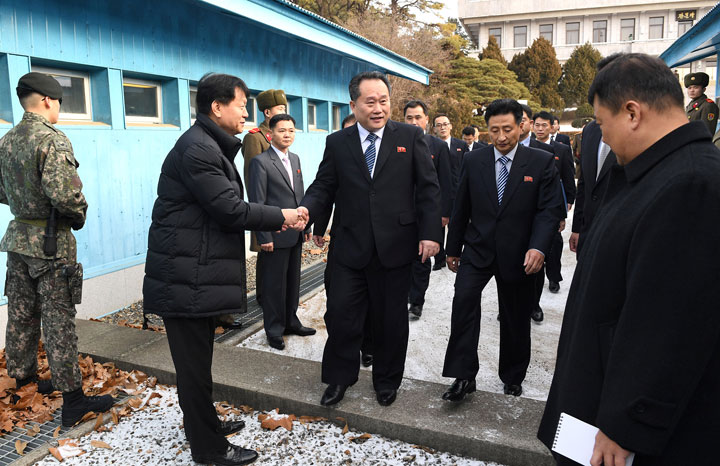North Korea sent a rare announcement addressed to “all Koreans at home and abroad” on Thursday, saying they should make a “breakthrough” for unification without the help of other countries, its state media said.

It said all Koreans should “promote contact, travel, co-operation between North and South Korea” while adding Pyongyang will “smash” all challenges against reunification of the Korean peninsula. Technically, the two states are still at war.
This isn’t the first time the reclusive state has called for reunification, said Elliot Tepper, a senior research fellow at Carleton University’s Centre for Security, Intelligence and Defence Studies. North and South Korea issued similar joint statements in 1972 and 2000, during periods of relative peace.
Still, such statements are “few and far between,” he said.
He regards the North Korean call as a positive development. “Any steps which reduce the tension, which was at its peak, is very welcome.”
Tina Park, founder of the Canadian Centre for the Responsibility to Protect, also sees this as a big step.
“This is big news, North Korea calling for reunification.”
“This is a very different kind of message that we’re hearing from North Korea after months of military provocations.”
There are other positive signs, such as North Korea and South Korea reopening communication lines across the DMZ, and attending the Pyeongchang Winter Olympics together. And, she thinks that some of the recent high-level negotiations between North and South Korea are beginning to bear fruit. “As a Korean person living abroad, this is very welcome news.”
However, she says the world shouldn’t be “naïve” about North Korea’s intentions. “We should always be careful not to over-estimate messages coming out of North Korea because they are known for using rhetorical messages to channel their political agenda and gain concessions.”
Tepper thinks this is likely the goal. Although he’s happy that tensions appear to be going down rather than up, he’s suspicious of North Korea’s motive. “There’s certainly reason to suspect that this is a stalling operation from the North to give it time to escape sanctions,” he said.
Besides, the North and South might have very different visions of what reunification could look like.
“There is every reason to suspect that the North considers reunification to be as a result of conquest of the South by the North.”
Park says the North Korean regime will continue to do everything it can to become a nuclear power, and will likely succeed. So, the question becomes, what the rest of the world should do about it. “I think diplomacy still holds a lot of power in terms of convincing North Korea that yes, even if you do possess nuclear capabilities, the ultimate survival of the regime should not really be dependent upon nuclear capability but addressing some of the root causes of their insecurities.”
Dealing with the country’s economic problems and infrastructure issues could help, she suggests.
Although he remains suspicious of North Korean leader Kim Jong Un’s goals, Tepper thinks that the world shouldn’t ignore solutions proposed by the people who would be most affected by any conflict: the two Koreas and close neighbours like Japan. “We should not lightly dismiss any measures towards peace that South Korea and Japan would support simply because we are far away from the scene itself.”
— With files from Reuters




Comments